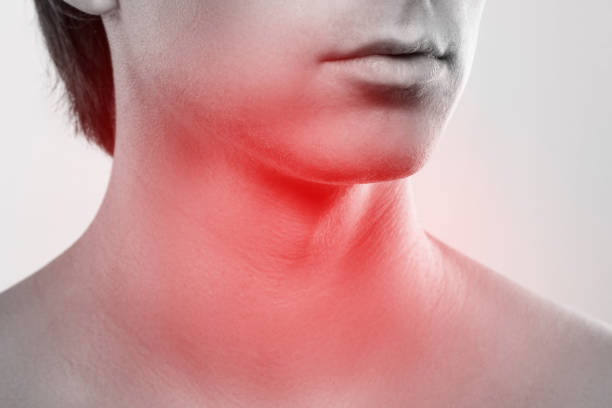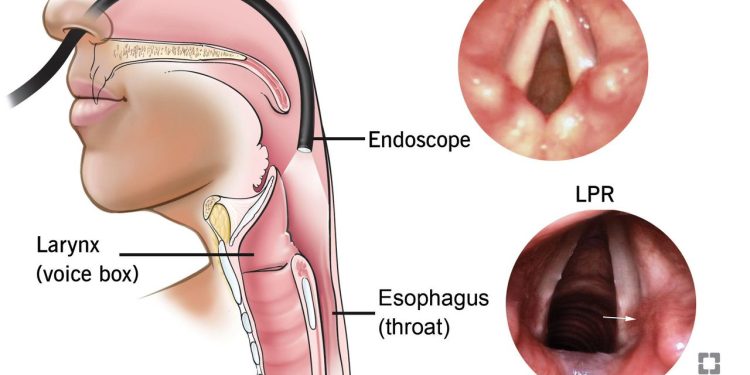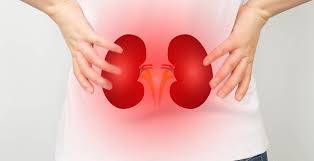Laryngopharyngeal reflux disease is a common condition that affects both men and women. In this article, we will discuss the symptoms of laryngopharyngeal reflux and how to prevent it.
1: What Is LPR?
Laryngopharyngeal Reflux (LPR) is a type of gastroesophageal reflux disease (GERD) that affects the upper airway, causing a range of symptoms. It is similar to acid reflux, but different in that it targets the upper airway, not just the esophagus. While acid reflux is characterized by heartburn and regurgitation, LPR is more likely to manifest as hoarseness, throat clearing, chronic cough, difficulty swallowing, post-nasal drip and a sensation of a lump in the throat. While LPR can be uncomfortable and cause a range of symptoms, it is treatable with lifestyle adjustments and medications. It’s important to understand the difference between acid reflux and LPR in order to develop an effective treatment plan. If you’re experiencing upper airway symptoms that don’t seem to be improving, talk to your doctor about LPR.
2: What Are The Symptoms Of LPR?
1: Chronic throat clearing and/or coughing
2: A sensation of a lump in the throat or tightness in the throat
3: Difficulty swallowing
4: Post-nasal drip
5: Hoarseness
6: Chronic cough
7: Trouble breathing
- Sleep difficulties (difficulty falling or staying asleep)
3: How To Prevent LPR From Developing?
Although LPR may develop due to a range of causes, it is often associated with gastroesophageal reflux disease or GERD. To prevent LPR from developing, it is important to be mindful of your diet and lifestyle. Avoiding acidic foods such as citrus fruits, tomatoes, and spicy foods can help reduce acid reflux and, therefore, reduce your risk of developing LPR. Additionally, if you smoke or drink alcohol, it is important to reduce or quit these habits as they can further aggravate acid reflux. If you are overweight or obese, losing weight can also be beneficial in preventing LPR from developing. Finally, if you experience frequent heartburn or acid reflux symptoms, it is important to speak to your doctor to discuss prevention strategies and possible treatments. Taking proactive steps now can help ensure that you don’t develop laryngopharyngeal reflux in the future.

4: How To Treat LPR If It Has Already Developed?
Treatment for LPR typically involves lifestyle changes and medications such as proton pump inhibitors (PPIs). Lifestyle changes include eating smaller meals more frequently throughout the day, avoiding spicy and acidic foods that can worsen acid reflux, avoiding lying down after eating and wearing looser fitting clothing. Medications like PPIs can help suppress the amount of acid your stomach produces and therefore reduce the amount of acid traveling up to your throat. It is also important to remember that LPR can take some time to be fully treated, so it is important to be patient and stick with your treatment plan. By making these changes and taking the right medications, you can help alleviate your LPR symptoms.
5: What Are The Risks Of Not Treating LPR?
Left untreated, gastroesophageal reflux disease (GERD) can lead to severe complications. This is especially true when the disease is in an advanced form known as laryngopharyngeal reflux (LPR). If left untreated, this can have serious implications for your health. It can cause respiratory symptoms such as coughing, wheezing, and shortness of breath. It can also lead to hoarseness and a chronic sore throat. When the acid reaches the vocal cords it can cause laryngitis, which can lead to vocal cord inflammation and even polyps. This can lead to long-term damage to the voice box, including changes in the voice. In addition, LPR can cause damage to tooth enamel from acid contact, bad breath, and difficulty swallowing. Lastly, if LPR is left untreated for too long it can even lead to cancer of the esophagus and larynx. It is important to seek medical attention if you are experiencing any of the upper airway symptoms associated with acid reflux as early treatment is essential in preventing long-term complications.
Conclusion
There are many reasons why it is important to treat laryngopharyngeal reflux disease. By following these tips, you can avoid developing this condition or worsening it if you already have it.






























